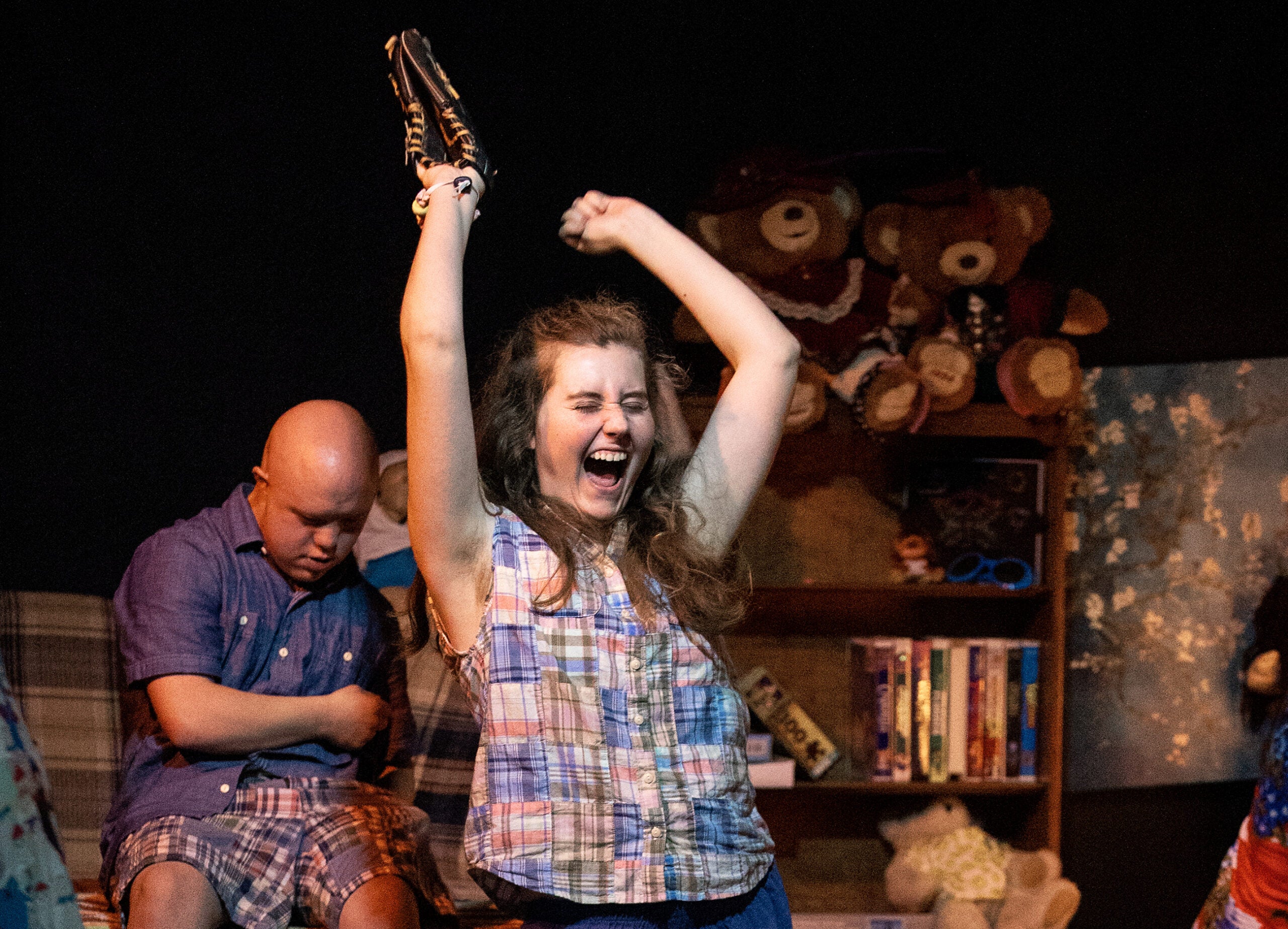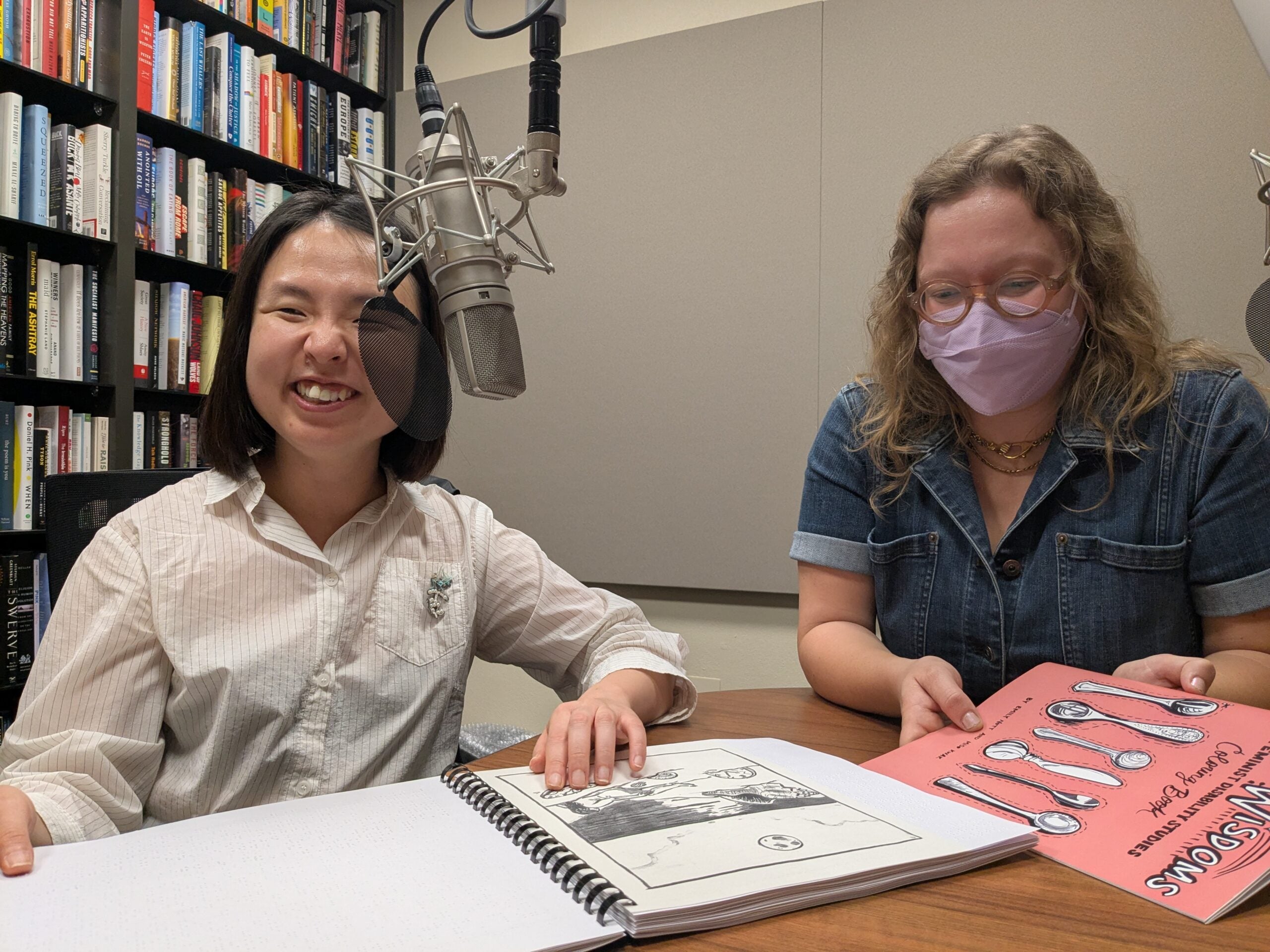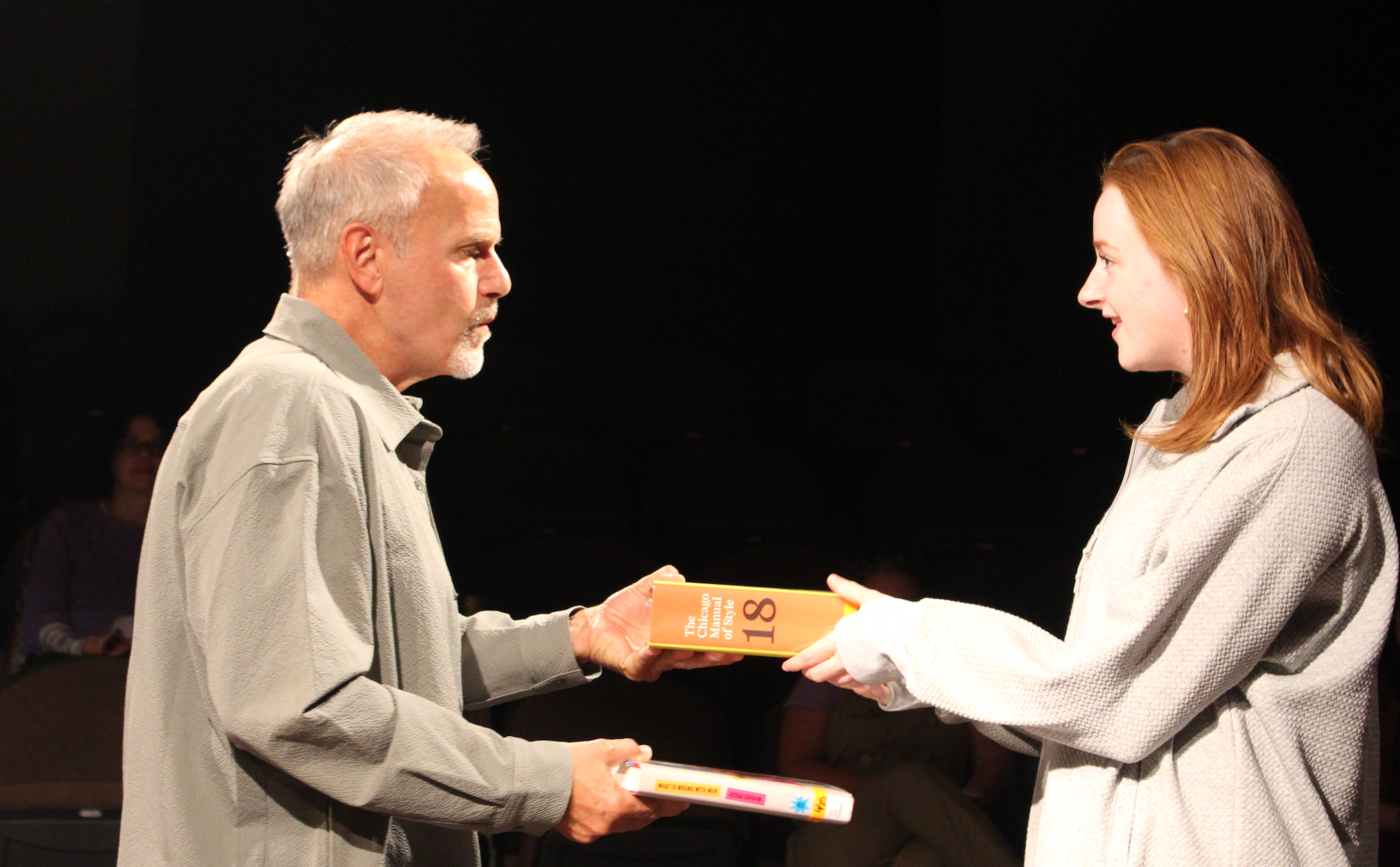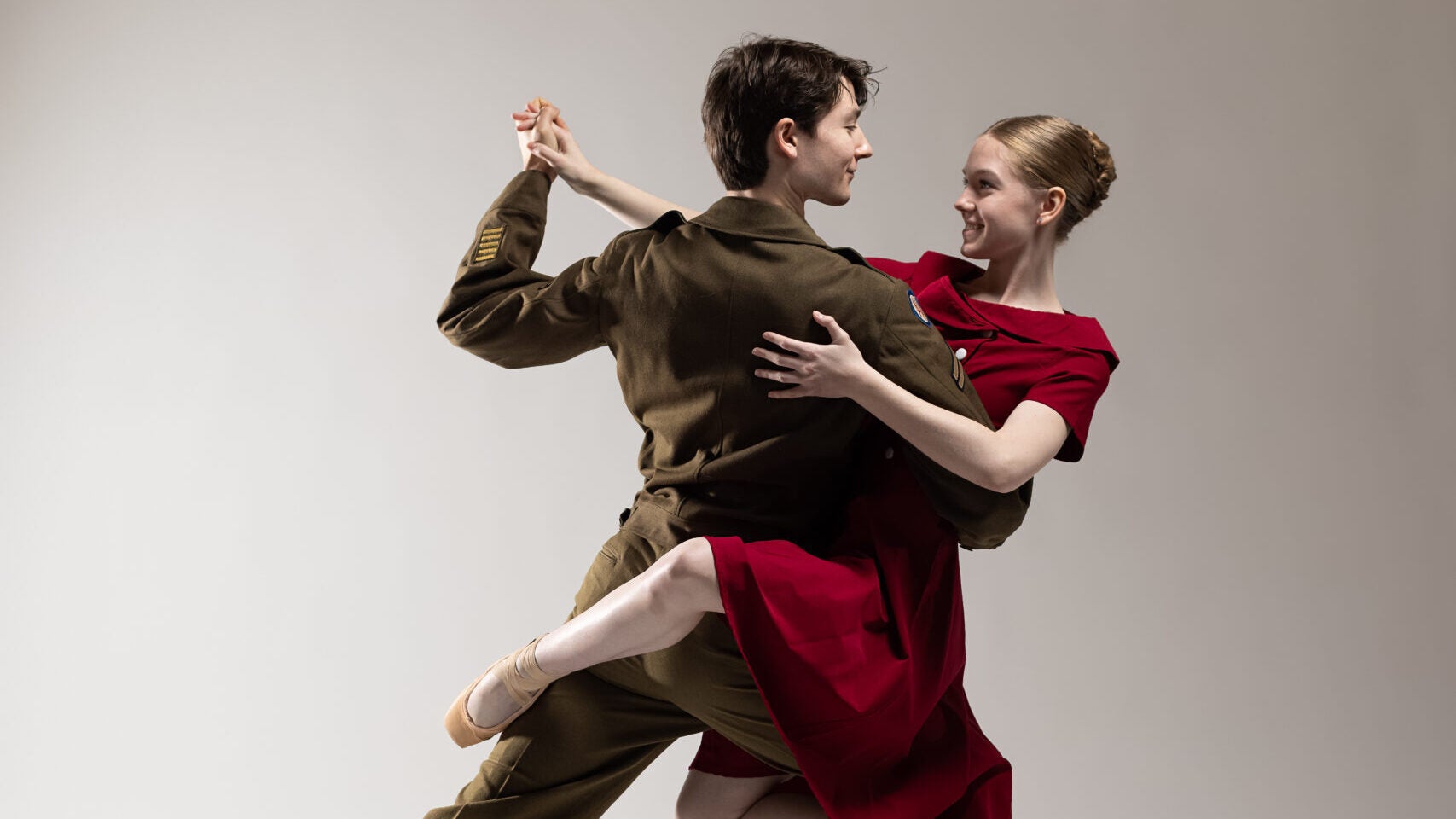The Pink Umbrella Theater Company was founded in 2018 as Milwaukee’s first theater for artists with a wide range of disabilities. The organization holds sensor-friendly plays throughout the year and holds classes for aspiring artists and performers.
In April, the Ruth Foundation for the Arts announced that Pink Umbrella will be the recipient of a $200,000 grant to be distributed over the course of two years.
The funding will be key to growing the company, said Pink Umbrella founder Katie Cummings.
News with a little more humanity
WPR’s “Wisconsin Today” newsletter keeps you connected to the state you love without feeling overwhelmed. No paywall. No agenda. No corporate filter.
“When I shared the news with our community, I cannot tell you how many of our actors and artists who identify with a disability just came back and said, ‘We’ve been seen. We’ve been heard. They want us to do more. What are we going to do? What can I write?’” Cummings said.
Cummings joined WPR’s “Wisconsin Today” to share what this funding means for her theater company.
The following was edited for clarity and brevity.
Kate Archer Kent: Why create a theater company that focuses on employing and lifting up artists with disabilities?
Katie Cummings: A few things converged that year. One, I was the academy director at First Stage Children’s Theatre in Milwaukee. And my colleague Jennifer Adams started a program in 2012. By 2018, we had over 200 or 300 students that had aged out of that. … We had many, many of our students who are now adults, working with us in a wide variety of ways. We were making them assistants to the teachers … just to keep them in the fold, because there was no place really for them to go.
The second part happened out in New York. I went to a conference where I learned about sensory immersive theater. I also learned that there were disability theaters for adults across the nation. I had a very strong feeling about starting one in Milwaukee.
The third thing was just that, when you do look around the theater community, there’s an expectation of what it should look like. At that point in time of my life, I was like, “Well, why does it have to look like this? Why can’t it look like something else?” So, I talked to my husband, and he encouraged me to quit my job and start the company. We did it on a wing and a prayer. It has been thriving ever since.
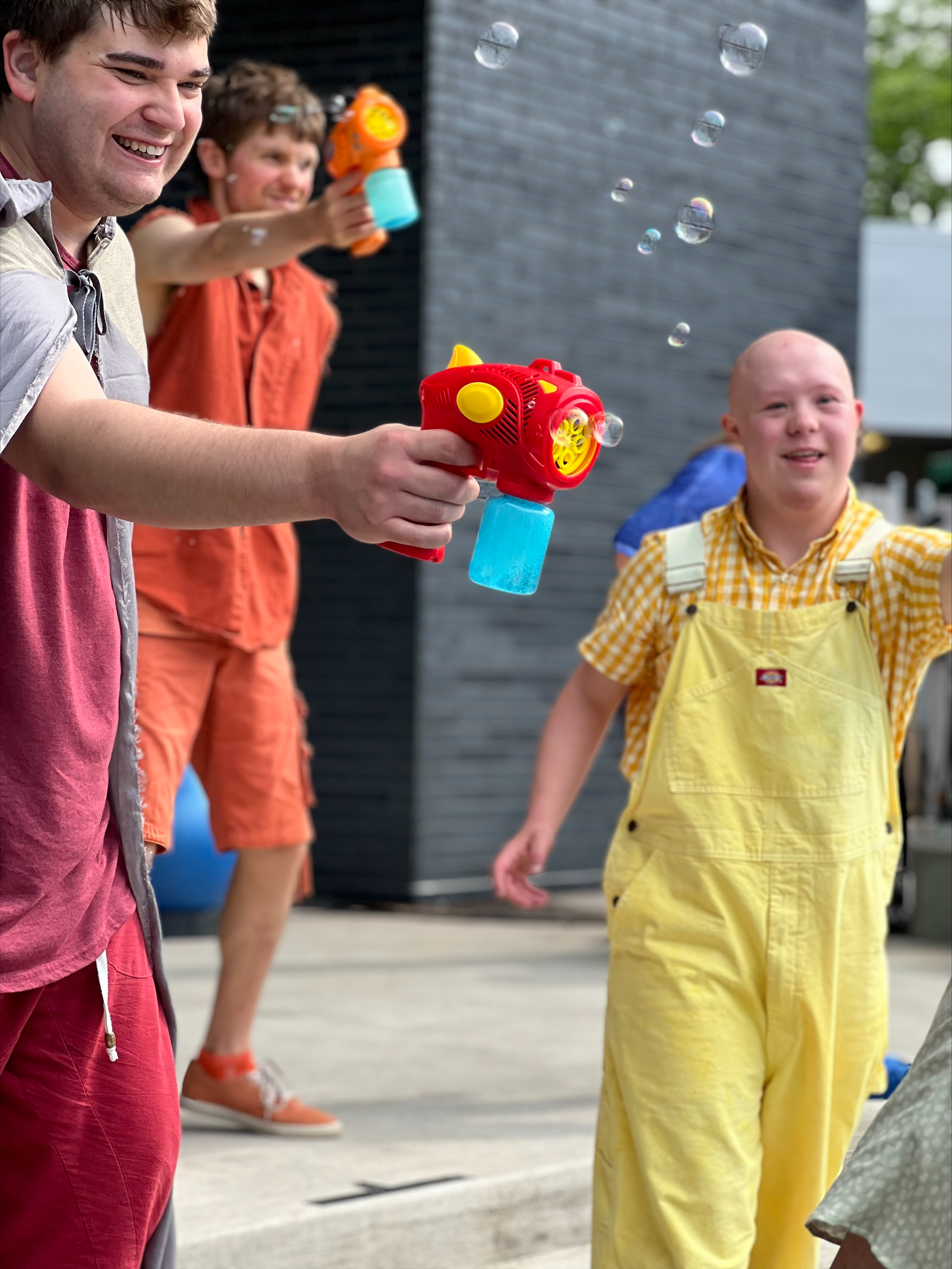
KAK: Fast forward to the spring. Along comes the Ruth Grant Foundation, awarding Pink Umbrella Theatre Company this grant. What was going through your mind when you learned that you had won this award?
KC: The initial response was just the sudden sense of overwhelm. … There was just such a sense of validation within the community in which we work that I still get a little teary and overwhelmed when I think about the potential for where this funding is going to take them and take this company.
KAK: How does your theater company choose plays that are inclusive of artists with a wide range of disabilities?
KC: We take all disabilities. There are theater companies across the nation that focus on one disability or another. We really have grown just by word of mouth. We are the first professional theater company in Milwaukee to pay actors and artists who identify with a disability and really focus our work on that.
We have found that by listening to the adults who identify with disabilities, they shared with us initially that their stories were not heard, and that the traditional theater canon of Shakespeare and musical theater … those kinds of things were not really written for their brains and bodies.
We actually write all of our own shows. We do that by hiring playwrights who identify with a disability or pairing disabled playwrights up with a typically developing or neurotypical human.
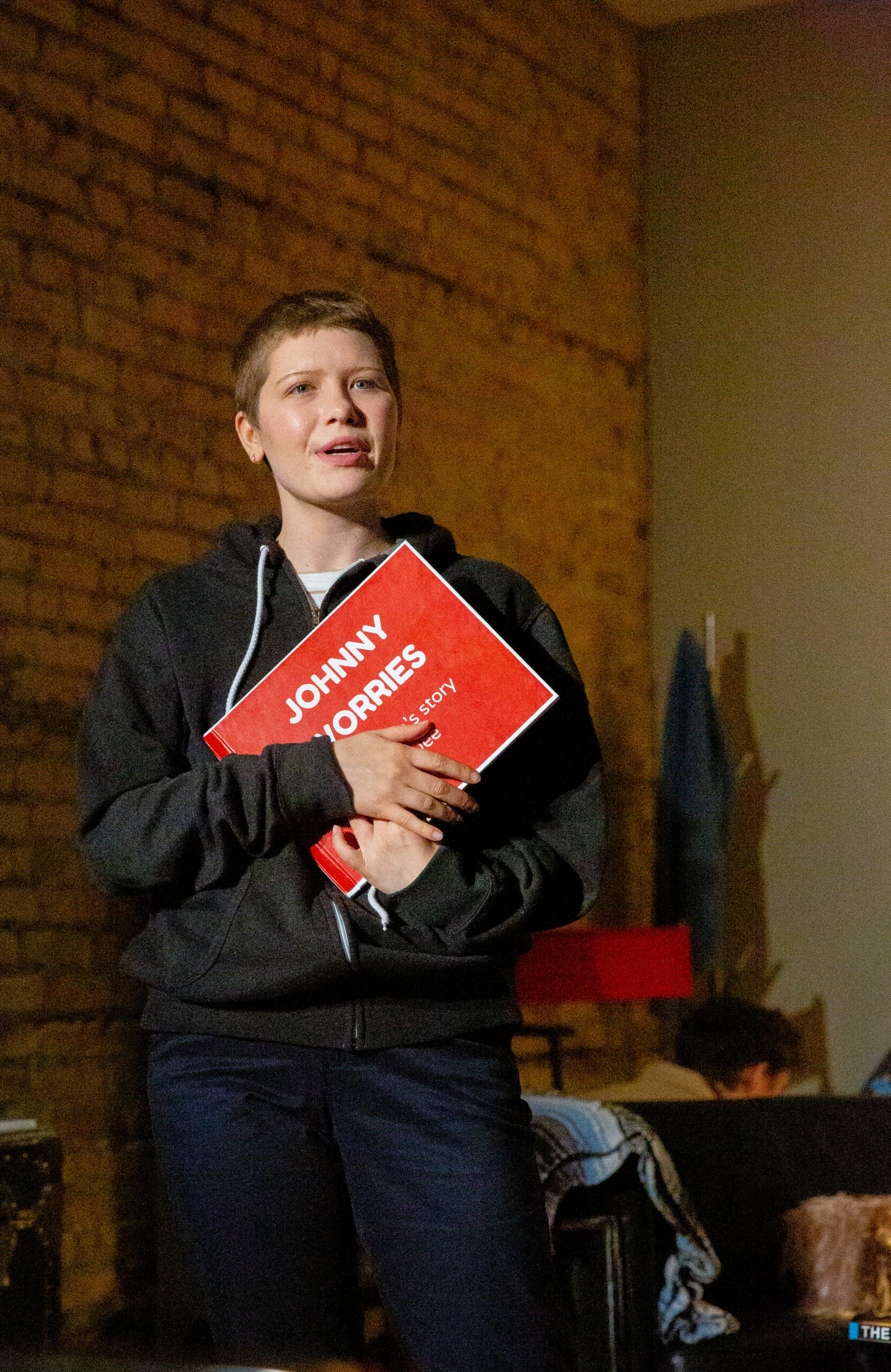
KAK: That’s what stood out to me about your theater company. You have this collection of guest artists working with the company and bringing all of their thoughts and creativity. What impact does that have overall in the theater company?
KC: People feel heard. They feel seen.
I had a conversation with an actor recently. She works in a wide variety of companies and she mentioned to me after rehearsal one evening that this is the first time she felt that she didn’t have to mask her emotional disability. She could just be herself in the rehearsal room. And it made her feel like she was able to be a better actor, because she was able to be not only vulnerable on stage and share the story, but just in rehearsals. She didn’t have to pretend to be something that she wasn’t, which is a recurring theme with a lot of actors and artists with disabilities.
They’ve (told) me over the course of the past five years that they don’t have to hide who they are when they hang out with us. That’s incredibly important and an incredible compliment to how we approach our work.
Wisconsin Public Radio, © Copyright 2025, Board of Regents of the University of Wisconsin System and Wisconsin Educational Communications Board.

